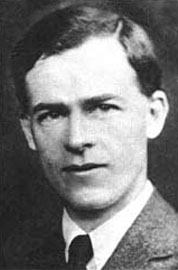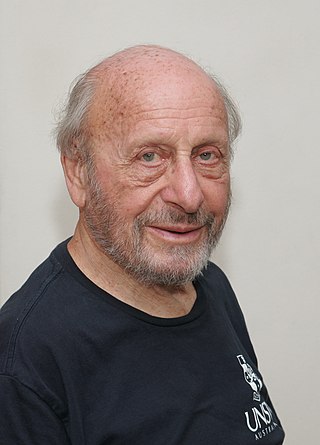Related Research Articles
Anarchism is a political philosophy and movement that is skeptical of all justifications for authority and seeks to abolish the institutions it claims maintain unnecessary coercion and hierarchy, typically including, though not necessarily limited to, governments, nation states, and capitalism. Anarchism advocates for the replacement of the state with stateless societies or other forms of free associations. As a historically left-wing movement, usually placed on the farthest left of the political spectrum, it is usually described alongside communalism and libertarian Marxism as the libertarian wing of the socialist movement.
Libertarian socialism, also known by various other names, is a left-wing, anti-authoritarian, anti-statist and libertarian political philosophy within the socialist movement which rejects the state's control of the economy under state socialism. Overlapping with anarchism and libertarianism, libertarian socialists criticize wage slavery relationships within the workplace, emphasizing workers' self-management and decentralized structures of political organization. As a broad socialist tradition and movement, libertarian socialism includes anarchist, Marxist, and anarchist- or Marxist-inspired thought and other left-libertarian tendencies.
Socialism is a political philosophy and movement encompassing a range of economic and social systems, which are characterised by social ownership of the means of production, as opposed to private ownership. As a term, it describes the economic, political, and social theories and movements associated with the implementation of such systems. Social ownership can be public, community, collective, cooperative, or employee. While no single definition encapsulates the many types of socialism, social ownership is the one common element, and is considered left-wing. Different types of socialism vary based on the role of markets and planning in resource allocation, on the structure of management in organizations, and from below or from above approaches, with some socialists favouring a party, state, or technocratic-driven approach. Socialists disagree on whether government, particularly existing government, is the correct vehicle for change.
Anarcho-syndicalism is a political philosophy and anarchist school of thought that views revolutionary industrial unionism or syndicalism as a method for workers in capitalist society to gain control of an economy and thus control influence in broader society. The end goal of syndicalism is to abolish the wage system, regarding it as wage slavery. Anarcho-syndicalist theory generally focuses on the labour movement. Reflecting the anarchist philosophy from which it draws its primary inspiration, anarcho-syndicalism is centred on the idea that power corrupts and that any hierarchy that cannot be ethically justified must be dismantled.

An intellectual is a person who engages in critical thinking, research, and reflection about the reality of society, and who proposes solutions for the normative problems of society. Coming from the world of culture, either as a creator or as a mediator, the intellectual participates in politics, either to defend a concrete proposition or to denounce an injustice, usually by either rejecting or producing or extending an ideology, and by defending a system of values.

George Douglas Howard Cole was an English political theorist, economist, and historian. As a believer in common ownership of the means of production, he theorised guild socialism. He belonged to the Fabian Society and was an advocate for the co-operative movement.
Hubert Lagardelle was a pioneer of French revolutionary syndicalism. He regularly authored reviews for the Plans magazine, was co-founder of the journal Prélude, and Minister of Labour in the Vichy regime.

Georges Eugène Sorel was a French social thinker, political theorist, historian, and later journalist. He has inspired theories and movements grouped under the name of Sorelianism. His social and political philosophy owed much to his reading of Proudhon, Karl Marx, Giambattista Vico, Henri Bergson, and later William James. His notion of the power of myth in collective agency inspired socialists, anarchists, Marxists, and fascists. Together with his defense of violence, the power of myth is the contribution for which he is most often remembered.
Mark Bevir is a British philosopher of history. He is a professor of political science and the Director of the Center for British Studies at the University of California, Berkeley, where he currently teaches courses on political theory and philosophy, public policy and organisation, and methodology. He is also a Professor in the Graduate School of Governance, United Nations University (MERIT) and a Distinguished Research Professor in the College of Arts and Humanities, Swansea University.
Gregory Claeys is Professor Emeritus of History at the University of London.

Geoffrey Colin Harcourt was an Australian academic economist and leading member of the post-Keynesian school. He studied at the University of Melbourne and then at King's College, Cambridge.
Sorelianism is advocacy for or support of the ideology and thinking of French revolutionary syndicalist Georges Sorel. Sorelians oppose bourgeois democracy, the developments of the 18th century, the secular spirit, and the French Revolution, while supporting classical tradition. A revisionist interpretation of Marxism, Sorel believed that the victory of the proletariat in class struggle could be achieved only through the power of myth and a general strike. To Sorel, the aftermath of class conflict would involve rejuvenation of both the bourgeoisie and the proletariat.

Reflections on Violence, published in 1908, is a book by the French revolutionary syndicalist Georges Sorel on class struggle and revolution. Sorel is known for his theory that political revolution depends on the proletariat organizing violent uprisings and strikes to institute syndicalism, an economic system in which syndicats truly represent the needs of the working class.

National syndicalism is a far-right adaptation of syndicalism to suit the broader agenda of integral nationalism. National syndicalism developed in France in the early 20th century, and then spread to Italy, Spain, and Portugal. It is generally considered a variant or school of fascism.
Types of socialism include a range of economic and social systems characterised by social ownership and democratic control of the means of production and organizational self-management of enterprises as well as the political theories and movements associated with socialism. Social ownership may refer to forms of public, collective or cooperative ownership, or to citizen ownership of equity in which surplus value goes to the working class and hence society as a whole. There are many varieties of socialism and no single definition encapsulates all of them, but social ownership is the common element shared by its various forms. Socialists disagree about the degree to which social control or regulation of the economy is necessary, how far society should intervene, and whether government, particularly existing government, is the correct vehicle for change.

The term classless society refers to a society in which no one is born into a social class. Distinctions of wealth, income, education, culture, or social network might arise and would only be determined by individual experience and achievement in such a society. Thus, the concept posits not the absence of a social hierarchy but the uninheritability of class status. Helen Codere defines social class as a segment of the community, the members of which show a common social position in a hierarchical ranking. Codere suggest that a true class-organized society is one in which the hierarchy of prestige and social status is divisible into groups. Each group with its own social, economic, attitudinal and cultural characteristics, and each having differential degrees of power in community decision.
Carl Levy is professor of politics at Goldsmiths College, University of London. He is a specialist in the history of modern Italy and the theory and history of anarchism.
Fascist syndicalism was a trade syndicate movement that rose out of the pre-World War II provenance of the revolutionary syndicalism movement led mostly by Edmondo Rossoni, Sergio Panunzio, A. O. Olivetti, Michele Bianchi, Alceste De Ambris, Paolo Orano, Massimo Rocca, and Guido Pighetti, under the influence of Georges Sorel, who was considered the “‘metaphysician’ of syndicalism.” The Fascist Syndicalists differed from other forms of fascism in that they generally favored class struggle, worker-controlled factories and hostility to industrialists, which lead historians to portray them as “leftist fascist idealists” who “differed radically from right fascists.” Generally considered one of the more radical Fascist syndicalists in Italy, Rossoni was the “leading exponent of fascist syndicalism.”, and sought to infuse nationalism with “class struggle.”
James Henderson Burns was a Scottish historian of medieval and modern political thought who also studied utilitarianism and Jeremy Bentham.
References
- ↑ "Professor Jeremy Jennings". King's College London . Retrieved 24 January 2021.
- ↑ "Jeremy Jennings". Engelsberg Ideas. Retrieved 24 January 2021.
- ↑ "Jeremy Jennings". Online Library of Liberty. Retrieved 24 January 2021.